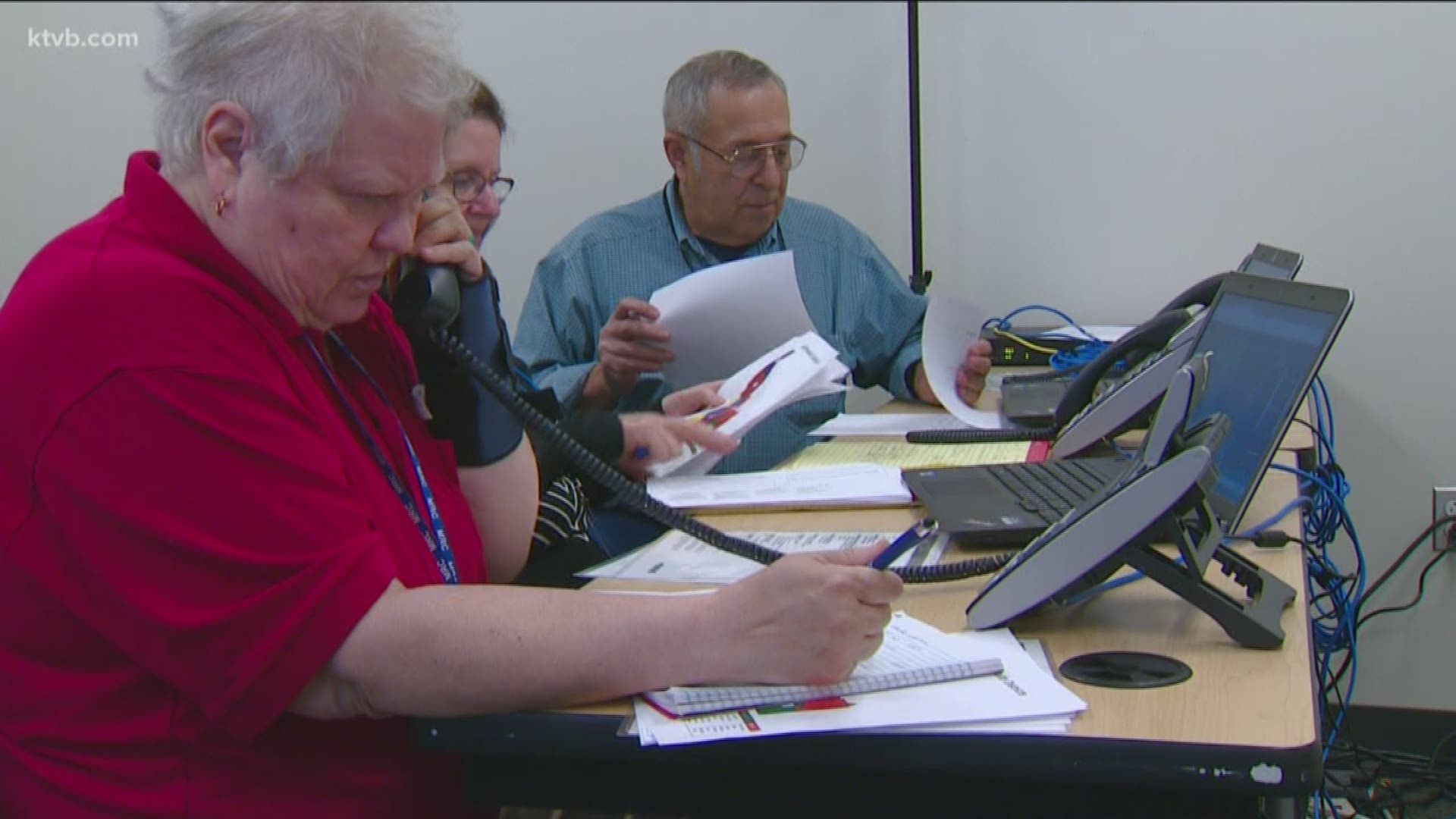CALDWELL, Idaho — Idahoans have a new resource when it comes to finding answers to questions about the COVID-19 coronavirus outbreak.
To help handle the increasing volume of calls from concerned citizens, Southwest District Health in Caldwell and Central District Health in Boise have set up call centers staffed with employees and volunteers who can answer your coronavirus-related questions.
The health departments say they are closely monitoring the spread of coronavirus, which has sickened more than 90,000 and killed more than 3,100, mostly in China.
SWDH's call center is available between the hours of 8 a.m. and 8 p.m. Monday through Friday, and can be reached at (208) 455-5411.
CDHD's call center will begin operating on Thursday. It will be available on weekdays from 8:30 a.m. to 4:30 p.m. and can be reached at 208-321-2222.
There are no confirmed coronavirus cases in Idaho and the risk to public is still believed to be low. However, cases have already been confirmed in neighboring Washington and Oregon, and the virus is expected to spread in the region.
"Many people don’t realize that the virus causing novel coronavirus (COVID-19) is different than the typical coronaviruses that commonly circulate among humans," SWDH Epidemiologist Cheryl Craig said in a statement. "The same precautions should be taken to avoid any coronaviruses and other respiratory diseases such as the flu."
- Everyone can make an effort to keep themselves healthy by:
- Washing hands often with soap and water
- Avoiding touching eyes, mouth, or nose with unwashed hands
- Keeping a distance of at least six feet from people who appear to have a respiratory illness
- Covering your coughs with a tissue or coughing into your elbow
- Cleaning often touched objects and surfaces using regular household cleaning spray or wipes.
If you have symptoms like cough, fever, or other respiratory problems, contact your regular doctor first. The medical provider can suggest precautions to help reduce the spread of your illness at the medical facility.
More information about coronavirus can be found here.
Facts not fear: Putting COVID-19 into context
The majority of people who have coronavirus will get better without any long-term effects, according to an Oregon doctor. About 82% of cases tend to be mild. In these cases, symptoms diminish over five to seven days, although people are still capable of transmitting the disease. But there are many people with a higher risk of having a more severe disease if they are diagnosed with coronavirus, including those with heart disease, diabetes, asthma and other vascular disease problems.
Also, most children who get it have mild symptoms.
To put the coronavirus numbers in context, millions of Americans get the flu every single year and there are thousands of flu deaths annually.
Since October 2019, the CDC estimates around 32 million Americans have gotten the flu. That’s one in every 10 Americans.
Since the coronavirus outbreak began late last year, there have been around 80,000 confirmed coronavirus cases in China. That means those cases account for just around .0056% of China's population.”

